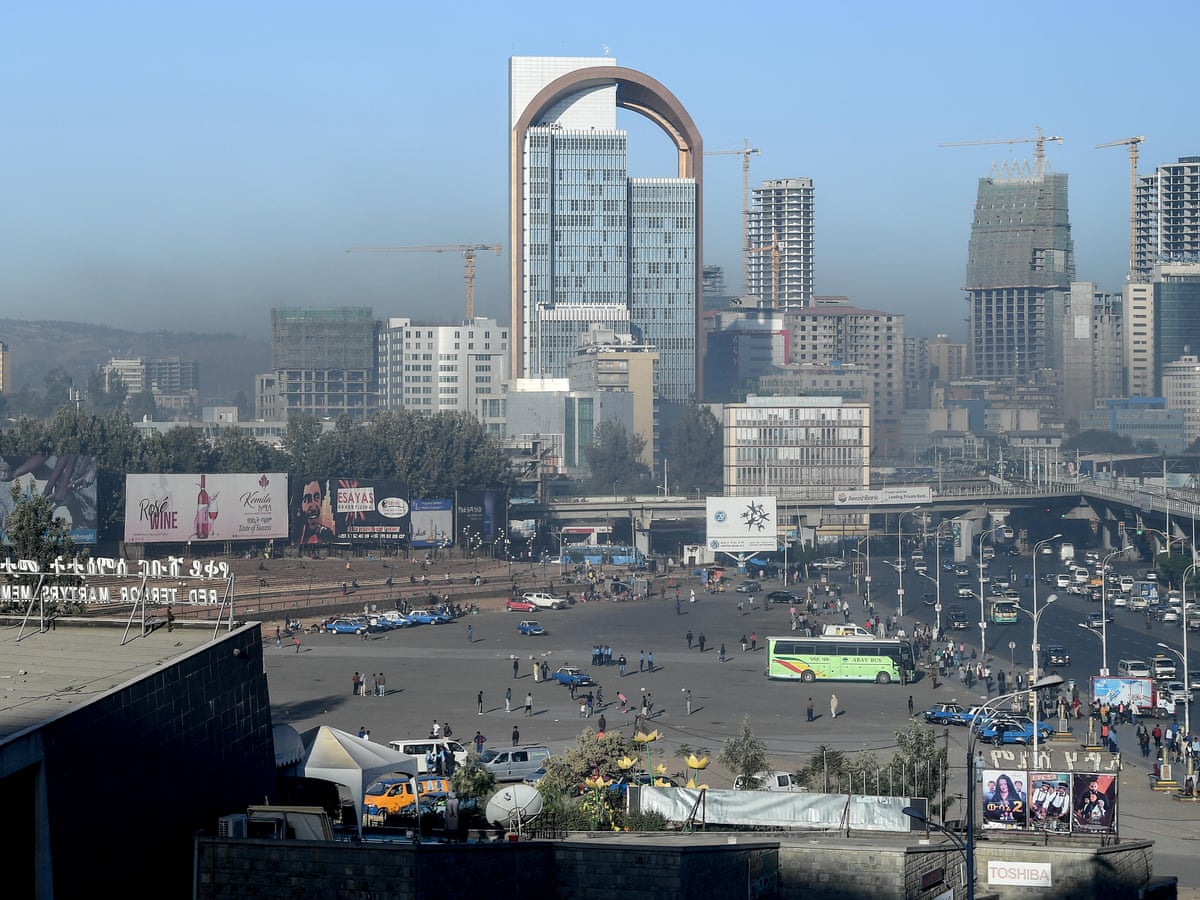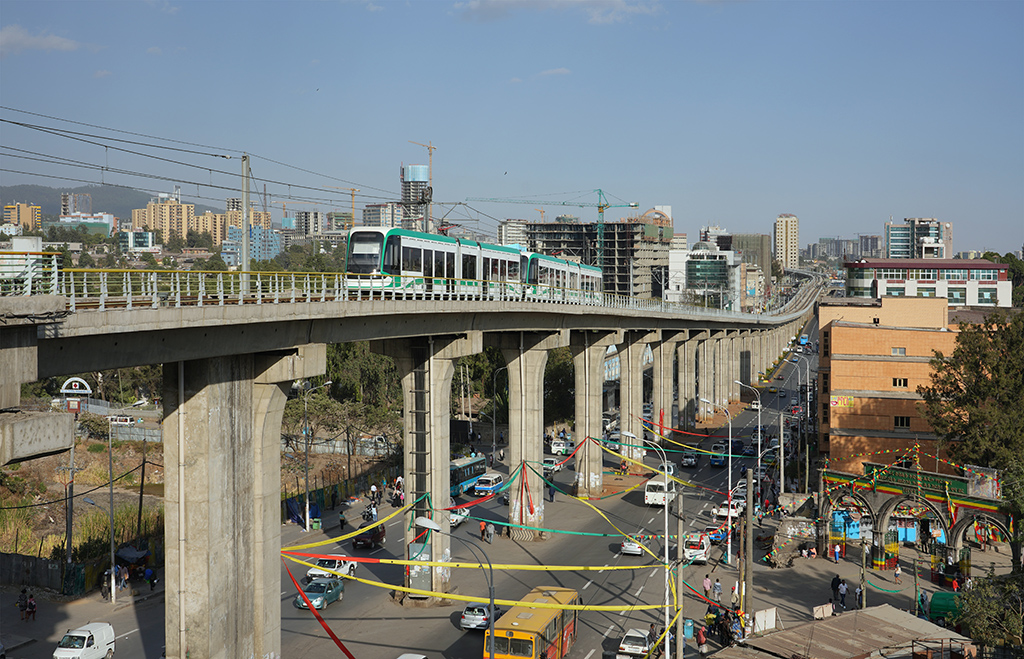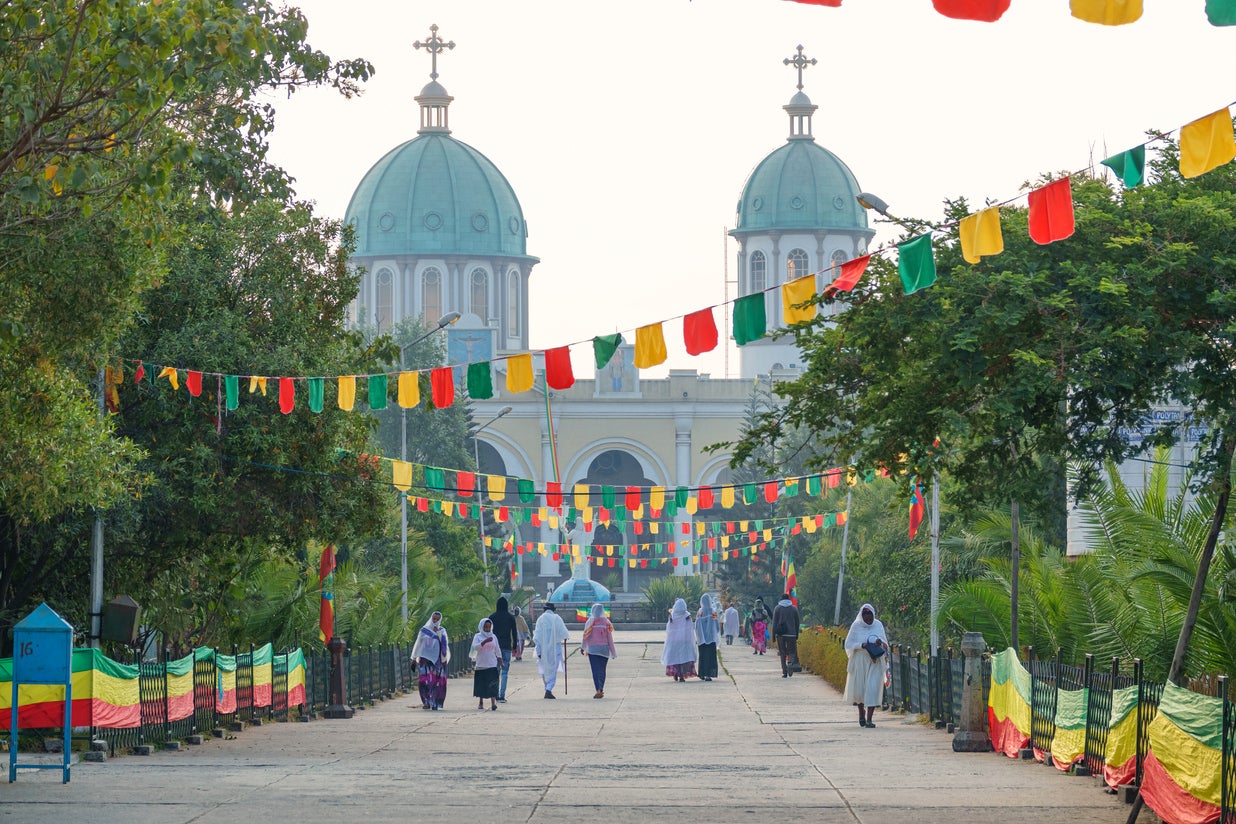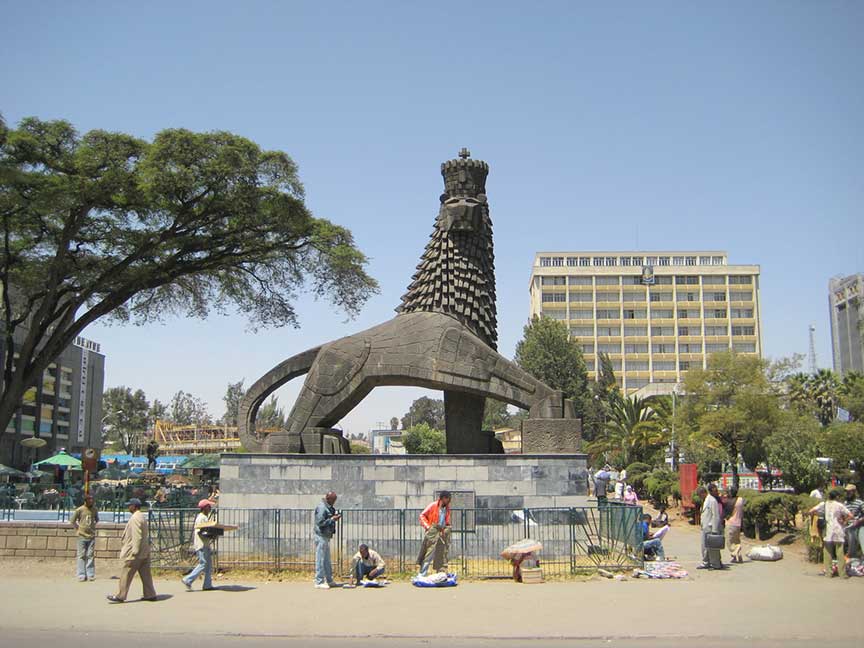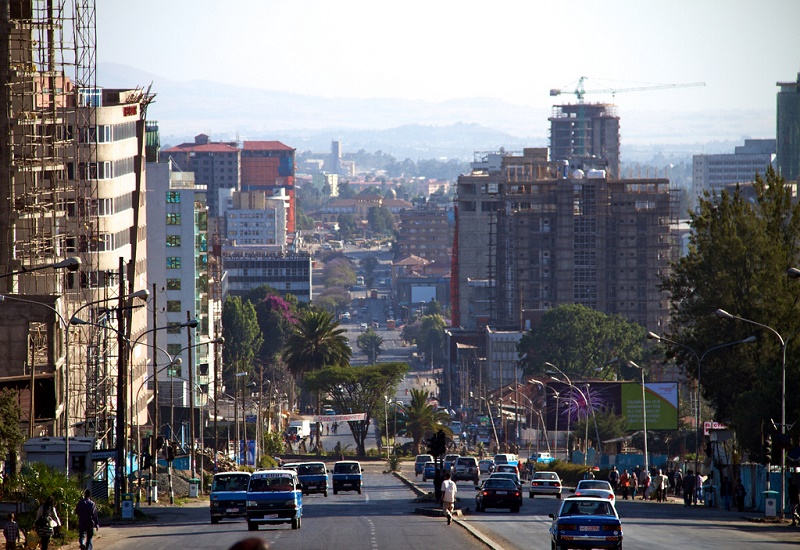Views Of Addis Ababa
About
location:
Central Ethiopia
Addis Ababa is the capital and largest city of Ethiopia. It is located in the central part of the country and serves as the political, cultural, and commercial center of Ethiopia. The city has a rich history dating back to the late 19th century when it was founded by Emperor Menelik II.
Addis Ababa is known for its diverse population, vibrant culture, and unique blend of traditional and modern influences.
One of the most popular attractions in the city is the Mercato. The Mercato is the largest open-air market in Africa, and it's a great place to experience the hustle and bustle of the city. You can find everything from spices to furniture at the Mercato.
The city is home to many historical and cultural attractions, including the National Museum of Ethiopia, which houses the famous fossilized remains of "Lucy," one of the oldest and most complete hominid skeletons ever discovered. Addis Ababa is also known for its bustling markets, lively nightlife, and delicious traditional cuisine, such as injera (a sourdough flatbread) and wat (a spicy stew).
In addition to its cultural offerings, Addis Ababa is an important political and diplomatic hub, as it hosts the headquarters of the African Union and the United Nations Economic Commission for Africa. The city is also a major transportation hub, with Bole International Airport serving as one of the busiest airports in Africa.
In conclusion, Addis Ababa is a dynamic and rapidly growing city that offers a unique blend of history, culture, and modernity, making it a fascinating destination for visitors and a vibrant home for its residents.
Things to know before travelling to Addis Ababa
This article is a tip of the iceberg but will equip you with the "Absolute Need to Knows" for Addis Ababa.
How to get there?
To get to Addis Ababa, you'll need to fly into Bole International Airport, the largest airport in Ethiopia. Bole International Airport is served by many major airlines, including Ethiopian Airlines, Emirates, Qatar Airways, and Lufthansa.
The airport is located about 6 kilometers from the city center, and you can get to the city by taxi, bus, or minibus. Once you're in Addis Ababa, you can get around using taxis, buses, and minibuses. Traffic in the city can be quite congested, so be prepared for some long rides.
About the weather
The weather in Addis Ababa is generally mild, with daytime temperatures ranging from 17 to 25 degrees Celsius. The rainy season is from June to September, when the city gets around 12 to 15 inches of rain.
During the dry season, from October to May, the city is much drier, with only 2 to 4 inches of rain. It's important to note that the city is located at a high altitude, at over 7,500 feet above sea level. Because of this, the weather can be quite cool at night, even during the warmest months of the year.
The city also experiences two distinct seasons: a hot season from March to May, and a cool season from November to February. The cool season is characterized by clear, sunny days and cool nights. The hot season is hotter and more humid, but still pleasant.
To sum it up, the weather in Addis Ababa is pleasant, and it's a great place to visit any time of year.
Medical matters that affect your visit.
There are several medical considerations to keep in mind when planning a visit to Addis Ababa, Ethiopia. Some of the important medical matters that could affect your visit include:
Vaccinations
It is recommended to be up-to-date on routine vaccinations before traveling to Addis Ababa. Additionally, vaccinations for diseases like yellow fever, typhoid, hepatitis A and B, and polio may be recommended depending on your travel itinerary and medical history.
Malaria
Addis Ababa is located in a malaria risk area, although the risk is lower compared to other parts of Ethiopia. Depending on your travel plans, your healthcare provider may recommend antimalarial medications and other preventive measures.
Altitude sickness
Addis Ababa is situated at a high altitude of around 2,400 meters (7,874 feet) above sea level. Some travelers may experience symptoms of altitude sickness, such as headache, fatigue, and dizziness. It is important to acclimatize slowly and stay well-hydrated to minimize the risk.
Food and water safety
Travelers to Addis Ababa should be cautious about consuming tap water, ice, uncooked fruits and vegetables, and unpasteurized dairy products to avoid gastrointestinal illnesses. Stick to bottled water and well-cooked foods from reputable establishments.
Air quality
Addis Ababa experiences air pollution, particularly during the dry season. If you have respiratory conditions like asthma, it's advisable to take precautions, such as carrying inhalers and avoiding outdoor activities during times of poor air quality.
Road safety
Road traffic accidents are common in Addis Ababa, so be cautious when crossing streets and using public transportation. Consider travel insurance that covers medical and emergency evacuation in case of accidents.
Always consult with a healthcare provider or travel medicine specialist well in advance of your trip to get personalized medical advice and recommendations based on your health status and travel plans.
Cultural etiquettes at Addis Ababa
There are a few cultural etiquettes to be aware of when visiting Addis Ababa. First, when greeting someone, it's customary to shake hands and say "Selam," which means "hello."
Second, it's important to dress modestly, as revealing clothing is considered disrespectful. Men should avoid wearing shorts, and women should avoid wearing sleeveless tops or short skirts.
Third, it's important to be respectful when entering a church, as they are considered sacred spaces. Finally, be sure to remove your shoes before entering a home, as this is considered polite.
Language and communication at Addis Ababa
The official language of Ethiopia is Amharic, but there are over 80 different languages spoken throughout the country. English is also widely spoken, particularly in urban areas like Addis Ababa. Most signage in Addis Ababa is written in both Amharic and English.
However, if you know a few words and phrases in Amharic, it will be appreciated by the locals. A few phrases to know are "Good morning" (Buna saba), "Thank you" (Amesegana), and "Goodbye" (Shalom).
Safety at Addis Ababa
Addis Ababa is a safe city to visit, but as with any major city, there are some safety concerns to be aware of. The biggest safety concern in Addis Ababa is petty crime, such as pickpocketing and bag snatching.
It's important to be aware of your surroundings and keep your belongings close to you, particularly in crowded areas. Additionally, it's best to avoid carrying large amounts of cash and to be aware of scams, such as people offering to help you exchange money.
Vital information on money matters
Money matters are an important part of any trip, and it's good to be prepared before you arrive in Addis Ababa. The currency in Ethiopia is the Ethiopian Birr, and there are a few things to know about money in Addis Ababa.
First, it's not possible to obtain the Birr outside of Ethiopia, so you will need to exchange money upon arrival. Second, US dollars are the easiest currency to exchange. Finally, many places do not accept credit cards, so it's best to carry cash with you.
Fun things to do at Addis Ababa
Visit the National Museum of Ethiopia
The National Museum in Addis Ababa is home to many important archaeological and cultural artifacts, including the famous fossilized remains of Lucy, one of the earliest human ancestors. It's a great place to learn about Ethiopia's rich history and culture.
Explore the Merkato Market
Merkato is one of the largest open-air markets in Africa and offers a vibrant and colorful shopping experience. You can find a wide variety of goods such as spices, textiles, traditional crafts, and more. It's a great place to immerse yourself in the local culture and pick up some unique souvenirs.
Try traditional Ethiopian cuisine
Ethiopian food is known for its unique flavors and communal dining experience. Make sure to try dishes like injera (a sourdough flatbread), doro wat (spicy chicken stew), and shiro (a spicy chickpea stew). You can find many excellent restaurants in Addis Ababa serving authentic Ethiopian cuisine.
Visit Entoto Hill
Entoto Hill offers stunning panoramic views of Addis Ababa and is home to the Entoto Maryam Church, a historic place of worship. It's a great spot for a leisurely hike or a picnic while enjoying the beautiful scenery and fresh mountain air.
Attend a traditional coffee ceremony
Coffee holds a special place in Ethiopian culture, and participating in a traditional coffee ceremony is a must-do experience. You can witness the roasting, grinding, and brewing of coffee beans, all while enjoying the warm hospitality of your hosts.
Explore the Holy Trinity Cathedral
This beautiful cathedral is a significant religious site in Addis Ababa and is known for its stunning architecture and colorful stained glass windows. It also serves as the final resting place for many notable figures in Ethiopian history.
Check out the Ethiopian National Theatre
The Ethiopian National Theatre often hosts cultural performances, including traditional music and dance shows. It's a great way to experience the local arts scene and appreciate the talent and creativity of Ethiopian performers.
Visit the Ethnological Museum
Located within the former palace of Emperor Haile Selassie, the Ethnological Museum showcases a diverse collection of artifacts and exhibits related to Ethiopia's various ethnic groups and cultures. It's a fascinating place to learn about the country's rich heritage and traditions.
These are just a few of the fun things you can do in Addis Ababa, Ethiopia. The city offers a mix of cultural experiences, historical sites, and natural beauty that will surely make your visit memorable.
Who can travel to Addis Ababa?
All nationalities can travel to Addis Ababa, but the requirements for obtaining a visa vary depending on your country of origin. Citizens of many countries, including the United States, Canada, the United Kingdom, and Australia, can obtain a visa on arrival at Bole International Airport.
The visa is valid for 30 days and costs around USD 50. Other nationalities may need to apply for a visa in advance through the Ethiopian embassy in their home country.
The entry requirements for Addis Ababa also depend on your vaccination status. All travelers to Ethiopia, including those who are transiting through Addis Ababa, are required to have a yellow fever vaccination certificate.
Without this certificate, you may be denied entry to the country. Additionally, it's a good idea to be up to date on your other vaccinations, such as tetanus and hepatitis A.
Travel Documents
You will need a valid passport and visa to enter Ethiopia. Make sure your passport is valid for at least six months after your travel date and check if you need to obtain a visa before traveling.
What time of the year is best to visit?
The best time to visit Addis Ababa depends on what you're looking for. If you're looking to avoid the crowds, the best time to visit is during the shoulder season, from March to May or September to November.
If you're looking to experience the city's vibrant cultural scene, the best time to visit is from June to August, when the city hosts many festivals and events.
The downside of visiting during the summer is that the weather is hot and humid. The winter months from December to February are cooler, but the city is often shrouded in fog.
Packing essentials for your trip
Packing essentials for a trip to Addis Ababa, Ethiopia, may include:
Passport and travel documents
Ensure you have your passport, visa (if required), travel insurance documents, and any other necessary travel documents.
Weather-Appropriate Clothing
Addis Ababa has a mild climate, but it can get cool in the evenings. Pack lightweight clothing for the daytime and layers for cooler evenings. A light sweater or jacket is recommended.
Comfortable Walking Shoes
Addis Ababa is a city best explored on foot, so comfortable walking shoes are essential. Consider packing a pair of sturdy walking shoes or sneakers.
Sun protection
Ethiopia's high altitude can result in strong sun exposure. Pack sunscreen, sunglasses, and a hat to protect yourself from the sun.
Medications and First Aid Kit
Bring any necessary medications, along with a basic first aid kit containing items like pain relievers, bandages, and stomach remedies.
Adapter and Charging Cables
Ethiopia uses Type C, E, and F sockets for electricity. Make sure to pack the appropriate adapter for your electronic devices.
Reusable Water Bottle
To stay hydrated, bring a reusable water bottle. While tap water is not safe to drink, you can easily refill your bottle with filtered water from restaurants or your accommodations.
Bug Repellent
Insect repellent is useful, especially if you plan on spending time outdoors or visiting rural areas.
Local Currency and Cash
While credit cards are accepted in some establishments, it's always good to have some local currency (Ethiopian Birr) on hand, especially for smaller purchases and in more remote areas.
Camera and Binoculars
Addis Ababa and Ethiopia, in general, offer stunning landscapes and cultural experiences that you may want to capture. Don't forget your camera and binoculars for wildlife viewing.
Remember to also check for any specific items you may need for your activities or accommodations in Addis Ababa, and consider the duration of your stay when packing your essentials.
view map
Book Flight ticket
If this widget is not showing try reloading the page
The flight search result will be provided in a new tab
Addis Ababa Bole international airport will be a good destination if you are coming from outside Ethiopia
Book Hotel
If this widget is not showing try reloading the page
The hotel search result will be provided in a new tab
Input Addis Ababa as the city name to search and compare hotel prices
You can book tours at hotels upon arrival.
